Please Don’t Feed the Algae
What’s changing in our coastal waters? Join us to explore Waquoit Bay by boat as our research associate answers your questions based on over twenty years of observations in the bay.



What’s changing in our coastal waters? Join us to explore Waquoit Bay by boat as our research associate answers your questions based on over twenty years of observations in the bay.

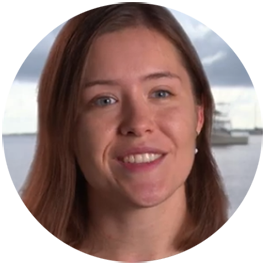
Claudia Mazur
NOAA Davidson Fellow at Waquoit Bay NERR; PhD candidate, Boston University
I grew up on New York City’s Staten Island, where I experienced the importance of good water quality first-hand. Currently, my research is focused on better understanding how excess nitrogen pollution impacts coastal nutrient cycling. I am a recipient of the Margaret A. Davidson Fellowship and am working with WBNERR to better understand the impacts of acidification on nutrient cycling pathways. My goal is to apply my findings to estuarine management projects that focus on supporting the resiliency of coastal communities under a changing climate. When I’m not doing research, I enjoy baking, yoga and cycling around Boston.
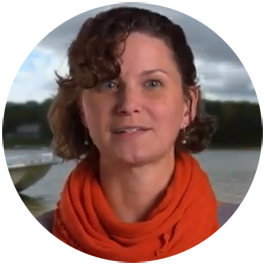
Jordan Mora
Research Associate, Waquoit Bay National Estuarine Research Reserve
Most people walk up to a salt marsh and observe a calm, tranquil place never knowing that these ecosystems actually resemble dynamic factories where essential energy and nutrients are continually converted, exchanged, and/or stored. My work at the Reserve allows me to monitor these silent functions, study how humans are disrupting their progress, and pilot innovative ways to restore them to their naturally productive state. I developed a passion for aquatic ecosystems as an undergrad at Denison University and pursued wetland restoration while acquiring my MS degree at the University of New Hampshire. When I’m not knee-deep in mud or covered in rotting algae, I enjoy gardening or learning a new tune on my fiddle.
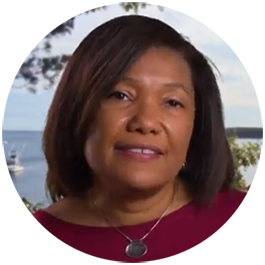
Tonna-Marie Rogers
Manager, Waquoit Bay National Estuarine Research Reserve
Check back for more info later.
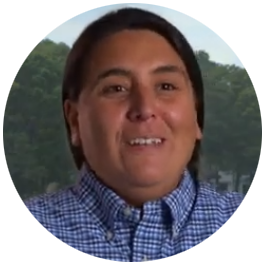
Dr. Paraskevi (Vivian) Mara
Research Associate, Woods Hole Oceanographic Institution
I specialize in marine microbiology, gene expression, and biogeochemistry in ocean water and marine sediments – exciting scientific fields that can add to our knowledge of processes in the ocean and reveal an unseen world. I got my PhD at the University of Hamburg. My first introduction to research came as an undergraduate student at the University of Crete where I helped to monitor the quality of drinking water in small coastal villages in Greece and of sea water in beaches. I was amazed when I discovered that microbes have their own personality and show diverse growth patterns under different growth conditions and growth media.
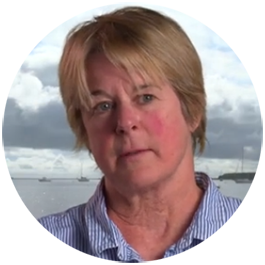
Dr. Virginia P. Edgcomb
Senior Scientist, Woods Hole Oceanographic Institution
My parents took me to the beaches of New Jersey, where we watched birds, fished, swam, and walked. I saw my favorite areas deteriorate over the years, and I helped with various cleanup projects. I was inspired in college by a professor who studied salt marshes. My PhD thesis focused on salt marsh ecology. I came to love the smell I used to find “stinky”, and to spend time watching the myriad creatures that use marshes for food and shelter. Working in Woods Hole extends my “reach” out into the ocean on ships where I also study open-ocean ecosystems, and I now understand that we humans must be better stewards of the blue part of our planet! It is full of surprises and new discoveries, and wherever my research takes me, I am thrilled to learn more about it. I hope students will take any opportunity they can to volunteer in a research laboratory where they can get inspired as I was, to try to make a difference!
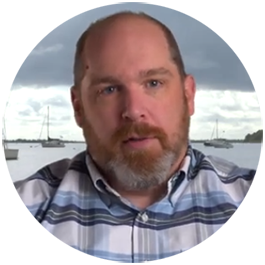
Dr. Daniel Rogers
Associate Professor, Analytical Chemistry, Stonehill College
When I was a kid, hydrothermal vent programs on TV captured my imagination. I decided at a young age that I wanted to learn more about hydrothermal vents, work at WHOI, and dive in Alvin. In grad school, I used coastal work as a proving ground for deep sea experiments. The ecological processes in both environments are very similar. My driver is really to understand the ecology of the systems, but I’m not a biologist. If you think of an ecosystem as a set of jobs (ecosystem services or niches) I’m more interested in what processes accomplish the jobs (the chemistry). My lab focuses on understanding how nutrients travel through the ecosystem, what processes are active, and at what rates these processes occur. I enjoy sharing these concepts with the college students I teach.
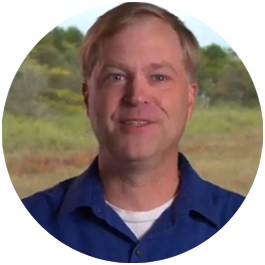
MA Department of Conservation and Recreation Service Forester
(formerly Stewardship Coordinator at Waquoit Bay National Estuarine Research Reserve)
Shortly after making this video, I moved from my Stewardship Coordinator job at Waquoit Bay Reserve to become a Service Forester for the Commonwealth of Massachusetts where I work on long term monitoring and research, forest carbon, and land protection in Southeastern Massachusetts. I hold a Masters in Natural Resource Management and a BS in Forestry. I found my forestry career with the help of an amazing mentor, Denny Lynch, from Colorado State University. I have previously worked for the EPA on riparian stream bank stabilization and restoration, the US Forest Service, Colorado State University, and several State agencies on the development and implementation and monitoring of best management practices to protect water quality.
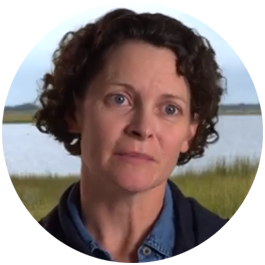
Research Coordinator, Waquoit Bay National Estuarine Research Reserve
When I was in high school, I went on a hike in the US Virgin Islands with my dad. We lost the trail and ended up bushwhacking through the dry forest. We finally came upon a secluded, leeward bay that had no houses in sight but was littered with plastic trash. It was at that moment that I decided to devote my career to reducing human impacts on the ocean. For a person that grew up in the middle of the US, aspiring to be a marine biologist was both ambitious and romantic; but I’ve never regretted my decision.
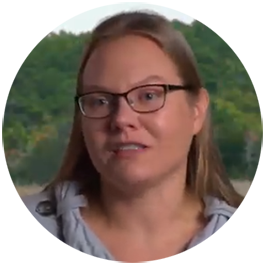
Dr. Meagan Eagle
Research Scientist, US Geological Survey
I come from a small island in Southeast Alaska, where fishing and tourism are important industries, similar to my home on Cape Cod now. Growing up, I loved being on the water and with that love came a responsibility to protect ocean and coastal ecosystems and resources. I do that now through my job as a federal scientist, where I connect important science with resource managers and the public. I also get to share my love of the outdoors with my Girl Scout troop, inspiring the next generation to love the ocean as much as I do.